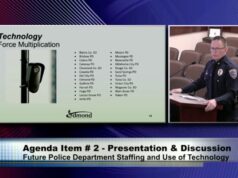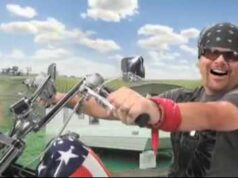
During a postseason bowl game broadcast from Memphis, one of the sportscasters remarked that Memphis was the birthplace of the blues.
That particular bit of chamber-of-commerce puffery is predicated on the 1912 appearance of W.C. Handy’s Memphis Blues, which, oddly enough, was not structurally a 12-bar blues composition. “Blues” is the term normally applied to folk music from rural black communities. That music then made its way, along with the people who played it, into urban environments.
But the birthplace of the blues as a notated, published musical form was — wait for it — Oklahoma City. And the individual responsible for it was a young man named Hart Wand.
Casual comment sparks name
Wand’s father owned a drugstore in Oklahoma City, having arrived in the land run of 1889. Hart worked in the drugstore, and when customers were few, he’d retire to the storeroom and practice his violin. An early-day multitasker, he led a small dance band and worked on creating new tunes that he could teach the other band members.
One day in 1912, Hart was in the storeroom practicing a piece influenced by various sorts of music he had heard in central Oklahoma. Another of his father’s employees was in the storeroom, and, at the conclusion of the piece, he remarked, “That gives me the blues to go back to Dallas.” Hart Wand had a title for his tune.
Annabelle Robbins, the pianist in Wand’s band, arranged the piece, and “Dallas Blues” was published in Oklahoma City in 1912, some months before the appearance of Handy’s blues. The sheet music sold out that first printing within a week. It was reprinted at least twice more by the end of the year.
Soon it was being played by bands up and down the Mississippi River and thence to New Orleans, Chicago and New York. “Dallas Blues” was originally an instrumental, but someone added lyrics in the early 1920s. The enhanced version may be found in Louis Armstrong’s discography, an endorsement if ever there were one.
Ah, the inconvenience of history
So, Memphis is spreading, well, fake history. The late musicologist Samuel B. Charters chronicled the Hart Wand story years ago. (But who needs old books, huh?) What does the Oklahoma City Chamber of Commerce tout? I’m guessing boat rides and streetcars and stuff like that, but an enterprising intern could look Hart Wand up.
Maybe the Chamber of Commerce should boast that Oklahoma City is the “birthplace of the blues” and see what happens. Maybe the city could start a bowl game.
Oh, wait. You need a big old stadium for that. What are the plans for MAPS 5, 6 or 7?
Oh, wait again. Oklahoma City would be providing publicity for Dallas, wouldn’t it?
Alas, alack, history is so inconvenient.
(Editor’s note: For more information on this topic, consider reading Black Music, White Music, One Music — the first chapter of the author’s book Singing Cowboys and All That Jazz: A Short History of Popular Music in Oklahoma.)




















